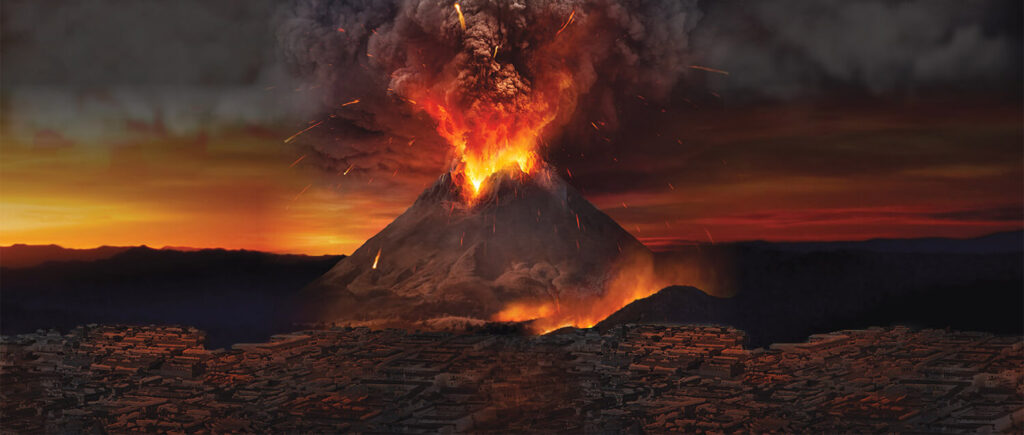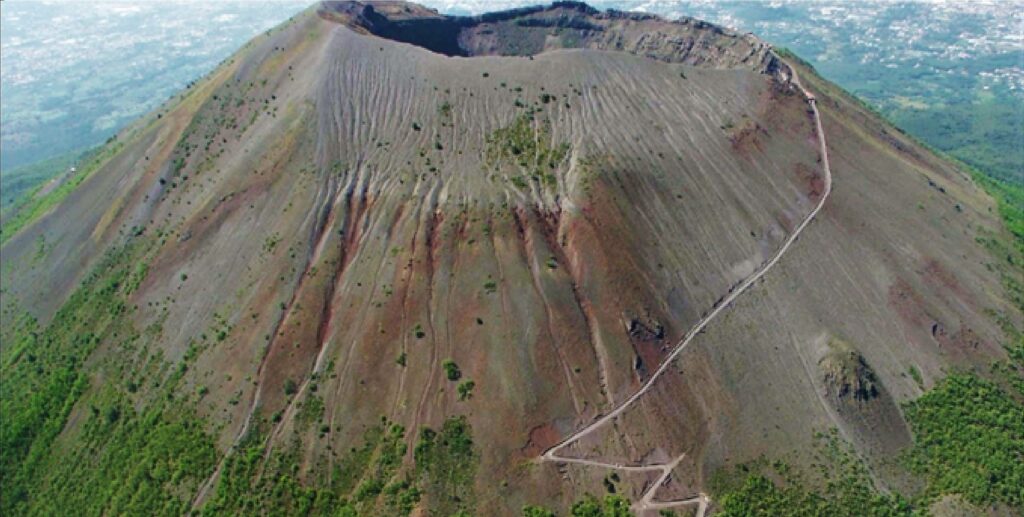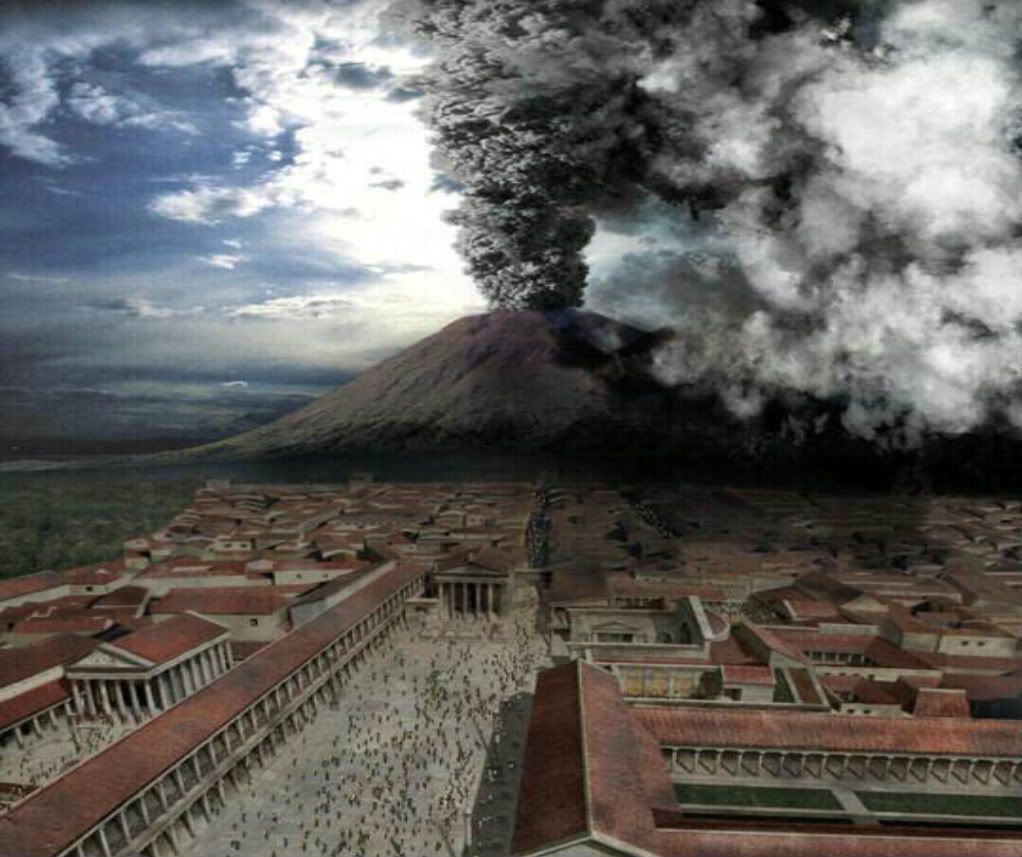
Mount Vesuvius: The Mountain of Gods legend

Mount Vesuvius is not only one of the most active volcanoes in the world, but it’s also surrounded by some of the most fascinating myths and legends that have been passed down through the ages. It’s not hard to see why, this massive volcano, which erupted famously in 79 AD, was more than just a geological feature to the ancient Romans. They saw it as a symbol of divine power, often linking it to some of the most powerful gods in their mythology, like Jupiter and Bacchus.
Mount Vesuvius: A Volcano of the Gods
The ancient Romans had a special name for Vesuvius—Iuppiter Vesuvius—linking it to Jupiter, the king of the gods in Roman mythology (the same as Zeus in Greek mythology). Why? Because the Romans believed that the volcano represented the power of the gods themselves. Jupiter’s home was Mount Olympus, which was considered a sacred and impenetrable place where only the gods could dwell.
So, associating Vesuvius with Jupiter made sense. It wasn’t just a volcano; it was seen as a manifestation of divine might, a symbol of the gods’ ability to control the world around them.
Vesuvius and Bacchus: Wine, Madness, and the Gods
But that’s not the only god connected to Mount Vesuvius. The volcanic region of Pompeii, Herculaneum, and the surrounding areas were also famous for their vineyards, which made another god come into play: Bacchus, the god of wine, ritual madness, and ecstasy. Bacchus was all about indulgence—celebrating life with wine, feasts, and often, a bit of wild behavior. His connection to Mount Vesuvius makes sense because the volcanic soil surrounding the mountain was rich and fertile, perfect for growing grapes.

This is where things get really interesting. Some of the things archaeologists have found in Pompeii, like amphorae (large pottery containers) used for wine, suggest that Bacchus was an important figure in the lives of people living near the volcano. The people there weren’t just farming grapes; they were celebrating Bacchus through elaborate feasts and rituals. In this sense, Mount Vesuvius wasn’t just a destructive force—it was also seen as a symbol of fertility, prosperity, and the indulgence of life. It was both a source of life (through the vineyards) and a reminder of the wild, sometimes uncontrollable forces of nature and the gods.
The Eruption of 79 AD: Divine Wrath or Natural Disaster?
Then came the infamous eruption of Mount Vesuvius in 79 AD, which completely buried the cities of Pompeii, Herculaneum, and others under ash and volcanic material. For modern scientists, it’s a well-documented natural disaster, but for the ancient Romans, it wasn’t just a random act of nature—it was a powerful, divine message. The eruption was interpreted as the gods’ wrath, punishing the people who lived nearby for their hedonistic and indulgent lifestyles. In the eyes of the Romans, the eruption wasn’t just a volcanic event—it was a divine retribution, a clear sign that the gods were angry with the people for their excessive behavior.
This idea of divine punishment was common in Roman mythology. The gods were seen as all-powerful and often acted swiftly to punish people for their moral failings. In the case of Pompeii and its neighboring cities, it was believed that the eruption of Vesuvius was a warning to others. The gods, particularly Jupiter and Bacchus, were sending a message: a life of excess and indulgence would not go unpunished.

Vesuvius’ Mythological Legacy: A Reminder of the Power of the Gods
Today, the eruption of Mount Vesuvius and the myths that surround it continue to captivate our imaginations. The idea of the volcano being linked to powerful gods like Jupiter and Bacchus adds a layer of mystique and wonder to the story. We know from modern science that the eruption was caused by tectonic plate movements and volcanic activity, but for the Romans, it was all about the gods’ will. The volcanic disaster wasn’t just a random event; it was a message from the divine, reminding people of the power that the gods held over the world and their ability to bring swift judgment upon those who lived in excess.
The volcanic soil that created the vineyards, the connection to Bacchus, and the myth of divine punishment all highlight how deeply interwoven nature and mythology were in the Roman worldview. For the people of Pompeii, Vesuvius wasn’t just a volcano; it was a living, breathing force of nature with ties to the divine. It represented both the blessings of prosperity (through the fertility of the land) and the dangers of living a life too focused on pleasure and indulgence.
The Continuing Allure of Mount Vesuvius

Even though we now understand that volcanic eruptions are natural geological events, the myths and legends of Mount Vesuvius still intrigue us. They offer us a window into the beliefs and values of the ancient Romans, who used mythology to explain and make sense of the world around them. The stories of Jupiter’s wrath and Bacchus’ connection to the land continue to remind us of the ancient understanding of nature’s power and how it was seen as both a blessing and a curse.
In the end, Mount Vesuvius is more than just a volcano. It’s a symbol of divine power, a reminder of the fragility of human life, and a link to the ancient myths that helped shape the Roman worldview. The eruption of 79 AD may have been a devastating disaster, but in the context of mythology, it was also a lesson in humility—a reminder that the gods, in all their power, were always watching.
So, the next time you hear about Mount Vesuvius, remember: it’s not just a volcano; it’s a living piece of ancient history, where myth and reality intertwine.
